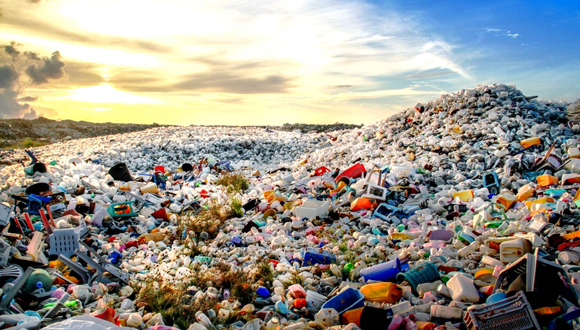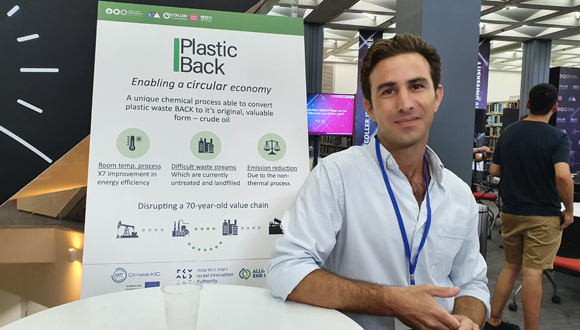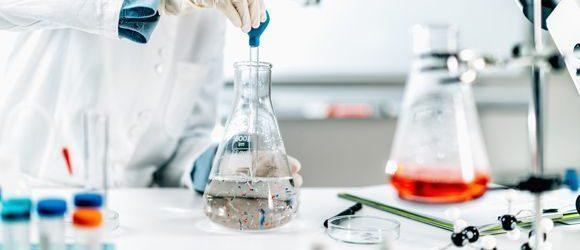TAU alumnus Tal Cohen and his company “Plastic Back” converts plastic waste back to its original form.
We use plastic in almost every aspect of our lives. It is cheap in production, durable and can be reused multiple times. The problem is, though, that 350M tons of plastic waste is produced annually, out of which only 8% is recycled. To counter the environmental hazard, laws and regulations, are implemented towards reducing landfill and increasing recycling. The EU has pledged to reduce landfilling to 10% of its current capacity by 2030. We spoke with Tal Cohen, a TAU alumnus with an MBA from the Coller School of Management and founder of a startup company called “Plastic Back”, who may have found the perfect solution.
The Big Savior Becomes the Big Offender
When plastic was originally introduced, 70 years ago, it was commonly believed that it would contribute to save the environment. “When plastic was first introduced, it was actually thought to be the big savior of the future environment, replacing the use of ivory, tortoise shell and corals. While petroleum came to the relief of the whale, plastic has given the elephant, the tortoise and the coral a respite in their native haunts,” says Tal. With time, however, it went from being the big savior to instead becoming recognized as a major environmental hazard,” Tal muses. Over the past 70 years since its invention, 8.3 billion tons of plastic waste has been accumulated worldwide.
And how is plastic produced? “After developing over millions of years underground, crude oil is drilled out and extracted. It is then sent to be refined by the petrochemical industry, after which it can be used for various purposes, such as fuel for cars and… plastic production,” explains Tal. Plastic is, in other words, produced from oil, a non-renewable source of energy.
Tal is well acquainted with plastic. After earning his B.Sc. in Marine Sciences and Environment at the Ruppin Academic Center, Tal Cohen worked as a marine biologist. Three kilometers offshore, surrounded by fish and – you guessed it – plastic, he would research, work in the lab and dive. After a few years, he went on to study for an MBA at Tel Aviv University: “I wanted to learn how to develop technologies and businesses that are focused on ecological solutions. While studying ‘Entrepreneurship and Innovation Technology Management’ at TAU, I was also working at a venture capital fund, handling portfolios of ten renewable energy companies. It taught me a lot about the needs of startups in the renewables field.”

Plastic Back’s technology offers waste handlers to help treat their waste streams and create profit, as an alternative to landfill
Bring it Back: A Chemical Solution
Tal Cohen and his Israeli based startup company “Plastic Back” offers an interesting solution: “By way of ‘reverse engineering’, we are able to convert plastic waste back to its original, valuable form of oils, waxes and other valuable chemicals. With unique chemicals, ratios and timing, our technology breaks down the carbon-to-carbon bonds of the plastic polymer to liquid fractions that can be (re)used by the petrochemical industry.” Brilliant, isn’t it?
“While transforming plastic back to oil through burning is already done, that requires very high temperatures, between 600-1000 degrees Celsius, which constitutes an environmental and financial burden. The real innovation here, is that we manage to convert the plastic to oil by chemical means only, and at room temperature. So there’s an environmental advantage which is expressed financially, and it is also advantageous energy-wise. The goal is to offer an alternative to the traditional drilling for additional non-renewable oil.”
The idea, Tal got while he was working with one of the aforementioned portfolio companies: “Once I felt like I had learnt enough about the startup world and what setting up a startup entailed, I went on a mission to find technologies. At The Hebrew University, they had a technology in place from 2016-17. It spoke to me, as it was related to plastic, which I was intimately familiar with from my time working underwater as a marine biologist, and I also knew that the renewables field is evolving.”
“The technology was in place, and so I decided to find out if there was any business interest for it. In 2019, I attended Shell’s competition in Holland, which is the largest energy competition in the EU, where more than 250 companies competed during 10 days of business and technological validation. We ended up in 2nd place. We knew then that there was demand for the crude oil which we were able to convert the plastic back to. Shell was willing to invest and to pay some money up front, so we had some starting capital. I went ahead and founded the company. We have since found an angel investor who invested a certain amount, have received recognition from the European Commission and are taking part in the EU accelerator program.”
Making Waste Vanish and Renewing Non-renewables
Who are the winners with this initiative? “Plastic Back enables a shift from a linear to a circular economy, by closing the loop between the petrochemical industry (including companies such as Shell), which is currently dependent of crude oil drilling and operating under increasingly heavy regulation and pressure, and the waste handlers who receive millions of tons of plastic waste from waste manufacturers, such as agriculture, factories and hospitals and medical devices, most of which goes to landfill. The waste handlers are seeking alternatives, especially as there’s been a fivefold increase in landfill price since 2019. The waste manufacturers, on their side, would gain the ability to treat their waste on site/close by, save expenses on removal and treatment fee and even create profits from their plastic waste.”
Tal is not planning to rest in the coming years, “The research and development phase of our project is completed for the most part. Last year, we successfully proved that there is demand for what we are offering. We have received a grant from the Ministry of Energy to set up our first pilot facility together with an industrial partner in the South of Israel in 2022. A year and a half after that, we would like to set up our first facilities. In five years from now, we should have two or three active facilities, hopefully one of them here in Israel and the rest in Europe.”

Tal Cohen presenting his startup at TAU’s Coller $100,000 Startup Competition in July 2021
Featured image: By way of ‘reverse engineering’, Tal’s team is able to convert plastic waste back to its original form.
